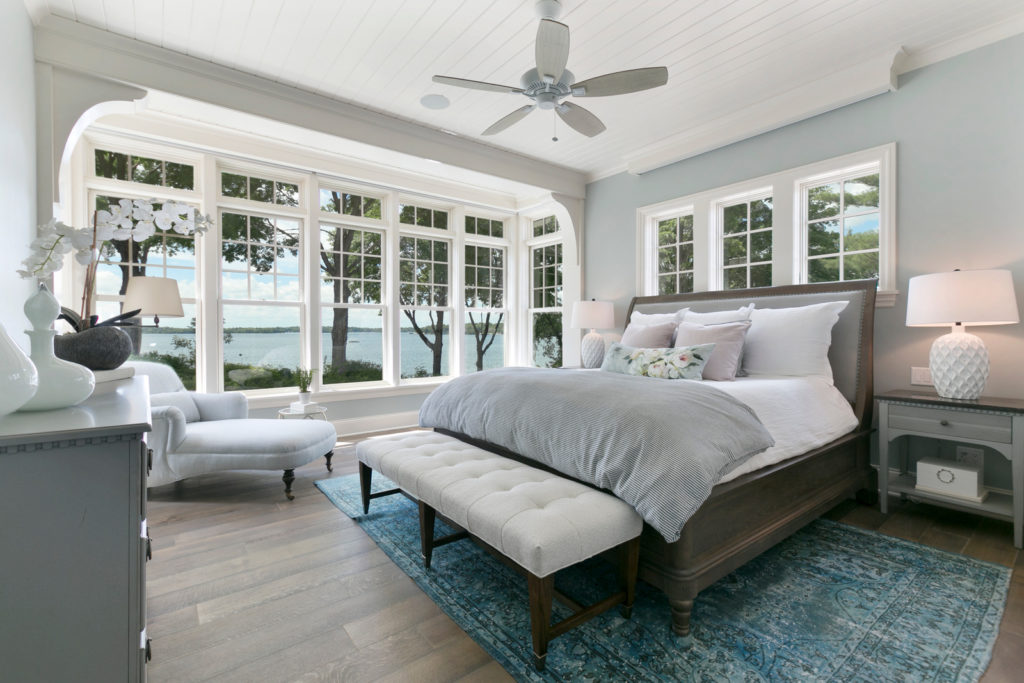8 Easy Ways To Improve Sleep
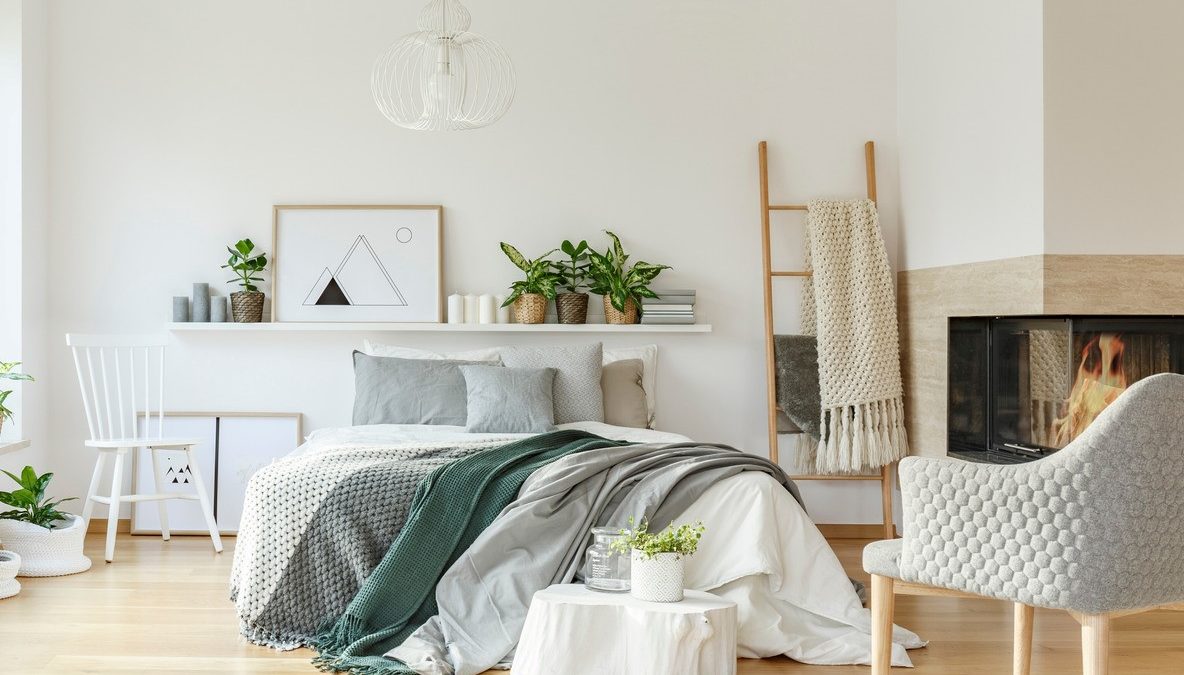
Do you sleep well 😴? You’re not alone if you don’t. 40% of Australians are reported to not get enough sleep according to The Philips 2020 Global Sleep Survey. Around half of those people detect daytime issues as a result o insufficient sleep. Sleep is also reportedly responsible for doubling the amount of errors a person will make in a day which has a massive economic and safety factor to play. Sleep disruption is caused by a variety of issues including lifestyle, age, genetics, restless leg syndrome and snoring to name a few.
Now of course for some of these issues you should seek medical assistance to assess and improve your sleep. And if you’re a heroic parent doing midnight feeds with your sweet little baby I can only say it will end before you know it. But no matter what the reason for sleep issues, there are a few things you can do to get a better nights sleep. I’ve listed a few below so you can wake up feeling a little more shiny tomorrow.

1. Invest in a good mattress. The Australian Chiropractic society says that your sleep will be 55% better if your mattress supports your body properly…and your back will hurt less. Win win!
2. Get some plants in your bedroom. NASA have shown that plants are excellent little filters of chemicals and CO2. Specifically, the plants roots and microbes that live there, absorb chemicals and eventually convert them into new plant tissue, like a chemical sink. Better still the plant will give you much needed O2. Mother in laws tongue, the rubber plant or the money plant are all great choices for a bedroom. Just keep the money plant out of reach of kids and animals as it is toxic if eaten.
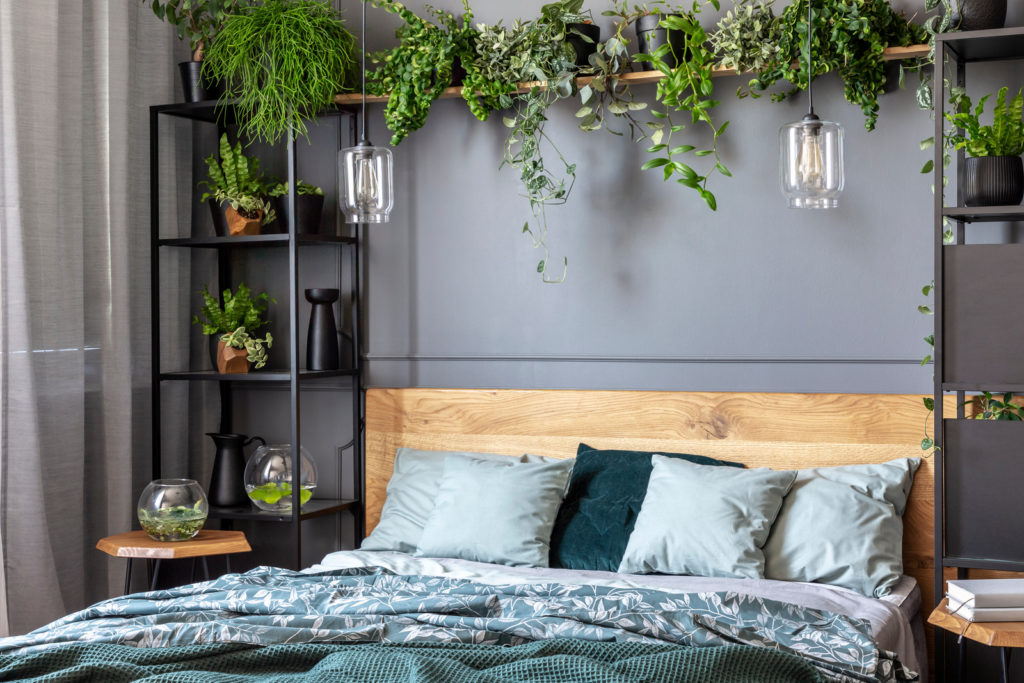
3. Never underestimate the power of essential oils like lavender, chamomile oil, sweet clary sage, Ylang Ylang (this list goes on). I wouldn’t recommend candles in a bedroom however companies like Perfect Potion and Myrtle and Moss have excellent options available that can be applied to your linen or body for an excellent nights sleep. You could also make yourself a shower bouquet or use essential oils in your bath before bed. Please do check in with your Dr if you’re pregnant as some essential oils should not be used when pregnant.

4. Set yourself up for good circadian rhythms. By rising with the sun, exposing yourself to sunlight during the day and reducing artificial light at night, you will be training your body to know when it is time to sleep. Make sure you throw the curtains open during the day and pop outside to enjoy a little sunshine as early as possible. Maybe your first cup of tea could be enjoyed on a balcony. Switch to low lighting at night with dimmers, candles or lamplight and remove as much blue light as possible. Even small indicator lights in a bedroom during the night can affect your sleep so move them to a different room.
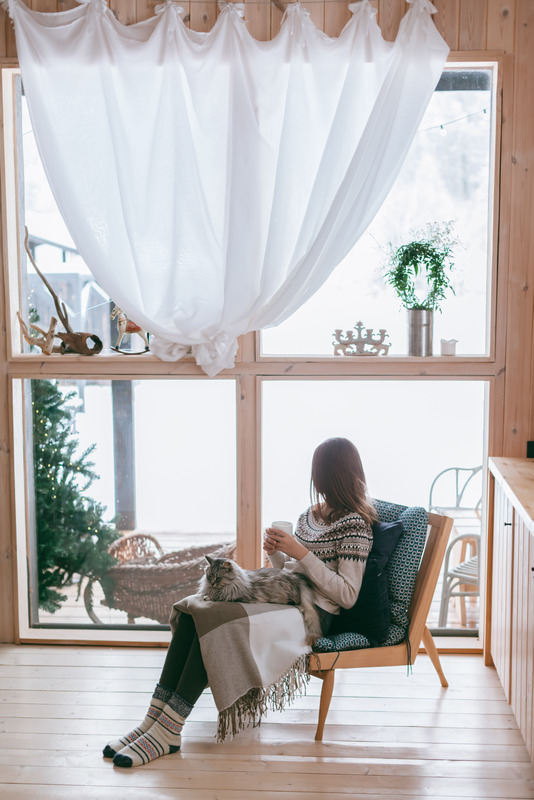
5. Layer your bedroom with calming colours and textures. Knitted wool rugs and throws, linen sheets and feather filled pillows are all comforting. Natural tones such as Porters Paints Angel Shoes, Hailstorm, or Explorer blue are all soothing. You might even create something really dreamy a soft mountain scene or an ombre wall for a feeling of drifting away in clouds.

6. Reduce the amount of visual content in your bedroom so it is not overstimulating. Make sure your space is tidy with limited items on display and avoid electronic devices in your bedroom. You might look to include a couple of books to encourage reading, your plants, some lamps and a piece of art. But not much more.
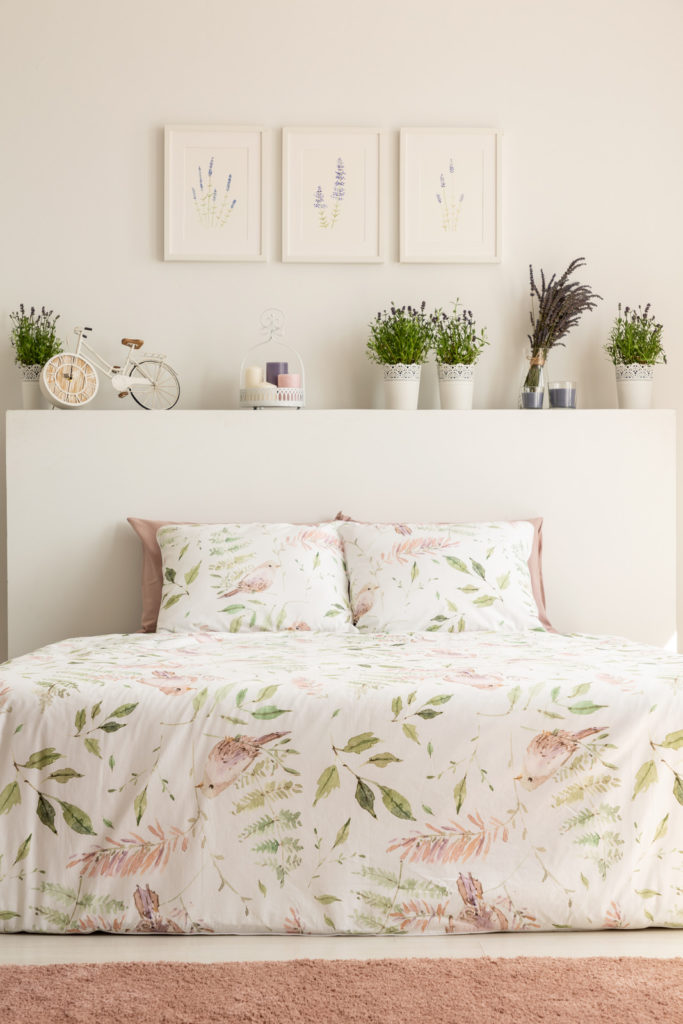
7. If you struggle to calm down at night try a nature sounds playlist. Nature sounds like light rain, wind gently blowing through grass and small chirping birds are known for their ability to reduce stress and calm people. Check out your favourite music streaming service for options.
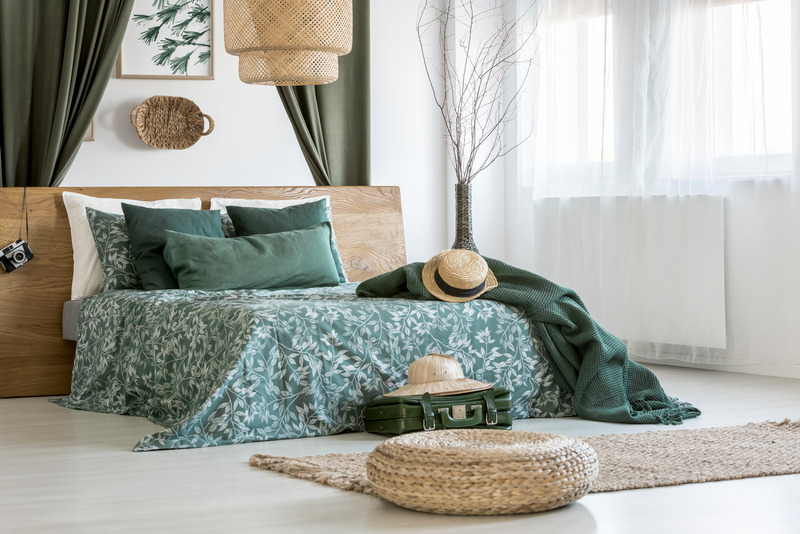
8. Maintain your room temperature. Healthline says that due to our body’s internal temperature regulation a bedroom temperature between 15.6 degrees and 19.4 degrees is the best for sleeping. As we drift into sleep our bodies naturally decrease in temperature. If our bedroom temperature is too warm it makes this more difficult resulting in poor sleep. So if you’re looking to air condition any room in your home your bedroom would be it. For sustainable strategies protect bedrooms from the western sun using block out curtains or trees so that they are not too hot in the evening. If you are in the building phase try not to place your bedrooms in direct line of sight with the western sun and use good insulation to maintain thermal regulations. And of course never underestimate the power of a quiet fan or fresh air.
